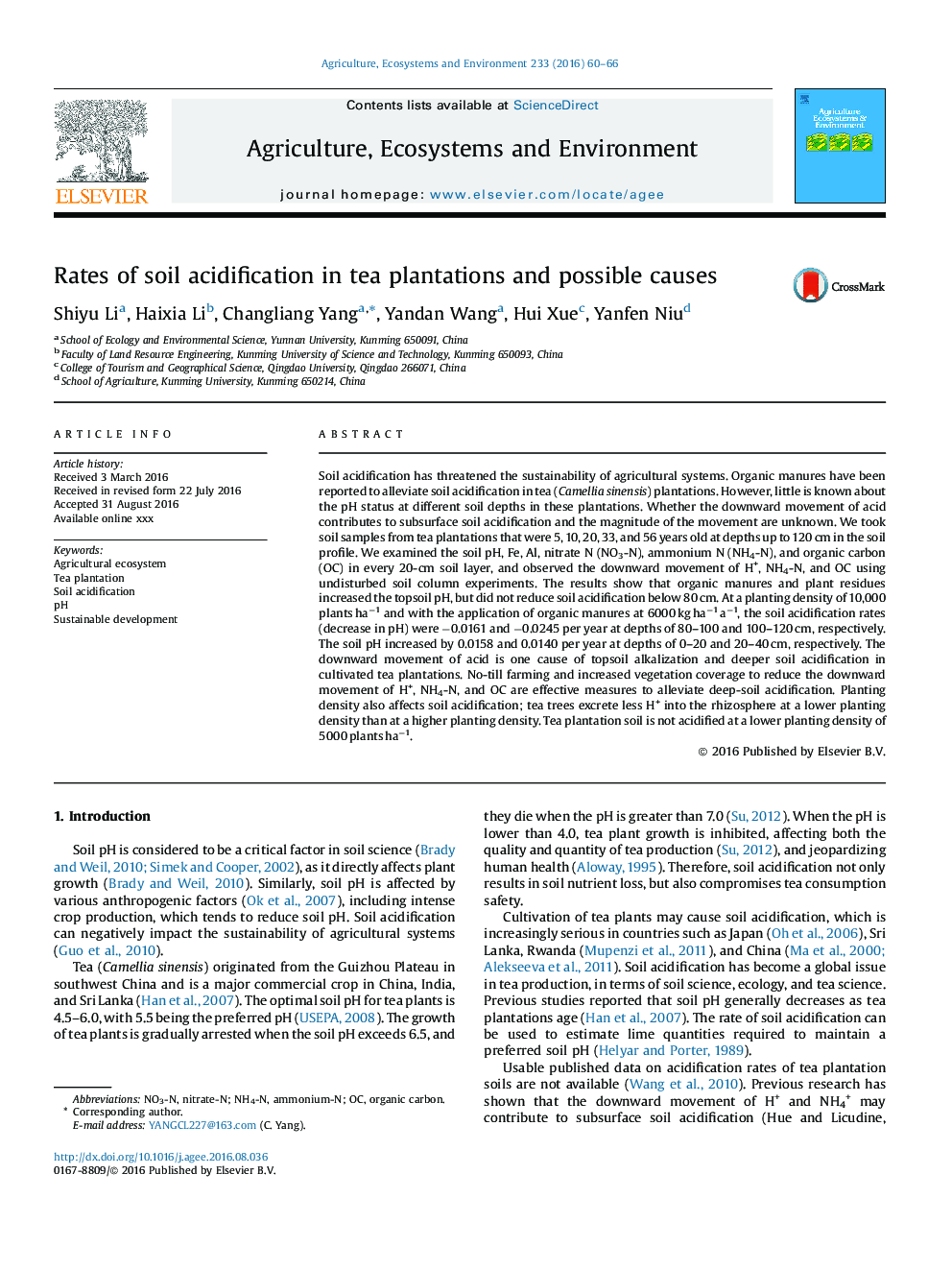| کد مقاله | کد نشریه | سال انتشار | مقاله انگلیسی | نسخه تمام متن |
|---|---|---|---|---|
| 2413469 | 1552019 | 2016 | 7 صفحه PDF | دانلود رایگان |
• Soil acidification occurs below a depth of 80 cm in tea plantation acid red soil.
• The downward movement of acid is one cause of tea plantation soil acidification.
• Organic manures and plant residues cannot alleviate deep-soil acidification.
• No-till farming and a reasonable density can relieve deep-soil acidification.
Soil acidification has threatened the sustainability of agricultural systems. Organic manures have been reported to alleviate soil acidification in tea (Camellia sinensis) plantations. However, little is known about the pH status at different soil depths in these plantations. Whether the downward movement of acid contributes to subsurface soil acidification and the magnitude of the movement are unknown. We took soil samples from tea plantations that were 5, 10, 20, 33, and 56 years old at depths up to 120 cm in the soil profile. We examined the soil pH, Fe, Al, nitrate N (NO3-N), ammonium N (NH4-N), and organic carbon (OC) in every 20-cm soil layer, and observed the downward movement of H+, NH4-N, and OC using undisturbed soil column experiments. The results show that organic manures and plant residues increased the topsoil pH, but did not reduce soil acidification below 80 cm. At a planting density of 10,000 plants ha−1 and with the application of organic manures at 6000 kg ha−1 a−1, the soil acidification rates (decrease in pH) were −0.0161 and −0.0245 per year at depths of 80–100 and 100–120 cm, respectively. The soil pH increased by 0.0158 and 0.0140 per year at depths of 0–20 and 20–40 cm, respectively. The downward movement of acid is one cause of topsoil alkalization and deeper soil acidification in cultivated tea plantations. No-till farming and increased vegetation coverage to reduce the downward movement of H+, NH4-N, and OC are effective measures to alleviate deep-soil acidification. Planting density also affects soil acidification; tea trees excrete less H+ into the rhizosphere at a lower planting density than at a higher planting density. Tea plantation soil is not acidified at a lower planting density of 5000 plants ha−1.
Journal: Agriculture, Ecosystems & Environment - Volume 233, 3 October 2016, Pages 60–66
